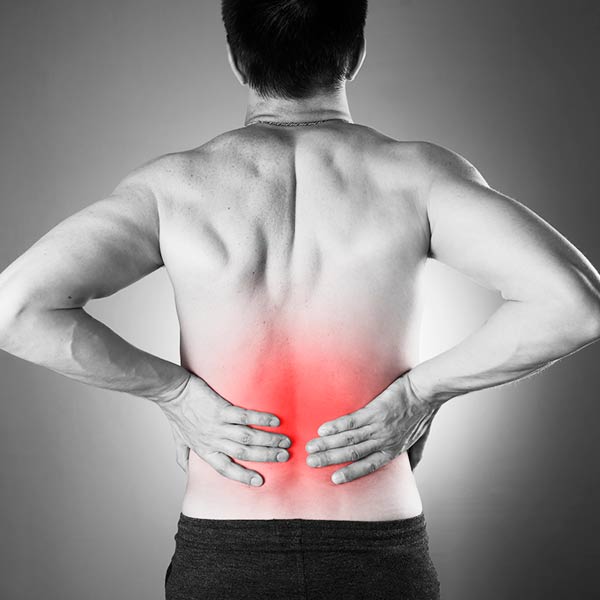DISC HERNIATION IS ONE OF THE MOST COMMON CAUSES OF LOWER BACK PAIN AND SCIATICA
It develops when the spongy cushions in your spine break open or become damaged – resulting in painful symptoms.

UNDERSTANDING DISC HERNIATION
Your spine is comprised of a number of bones, also called vertebrae. Each of these bones is cushioned by a spongy disc, which enables spinal flexibility and absorbs shock. When one of these structures bulges or breaks open, it’s called a herniated disc. A common problem, disc herniation tends to occur due to:
NATURAL WEAR AND TEAR
As you grow older, your discs naturally lose some of their flexibility and become more susceptible to damage.
LIFTING HEAVY OBJECTS
A herniated disc is likely to develop if you use your back muscles to lift heavy objects, instead of your legs.
SPINAL INJURY
An injury to the spine may result in cracks in the hard outer layer of the disc, which can ultimately cause the structure to bulge or break open.
A herniated disc can occur anywhere along your spine and neck. However, it’s most common in the lower back, or the lumbar spine.
SYMPTOMS
A herniated disc can appear with or without symptoms. When symptoms do appear, it’s typically because the damaged disc is applying abnormal pressure to the nerve roots, causing:
PAIN IN DIFFERENT AREAS OF THE BODY
If the herniated disc is located in your lower back, you will likely feel the pain in your buttocks, thigh and calves. If it’s located in your neck, the pain can extend into your arm and shoulder.
NUMBNESS OR A TINGLING SENSATION
A common herniated disc symptom, numbness or tingling will occur in areas of the body that are connected to the affected nerves.
PAIN THAT WORSENS WITH CERTAIN MOVEMENTS
In many cases, pain from a herniated disc will be exacerbated by changing positions, coughing or sneezing.
RADIATING PAIN DOWN YOUR LEG
If the sciatic nerve is affected by the herniated disc, you may experience pain that radiates down your leg and foot, also known as sciatica.
PREMIER TREATMENT FOR YOUR HERNIATED DISC
As an alternative to traditional steroid treatments, our team is actively researching new non-pharmaceutical approaches that include cell based therapies.
Disclaimer: Our healthcare practitioners use products and perform therapies cleared for general use by the United States Food and Drug Administration, but specific indications for treatment have not be evaluated and reviewed by the FDA. You are encouraged to consult with your primary care physician prior to undergoing a cell therapy.



